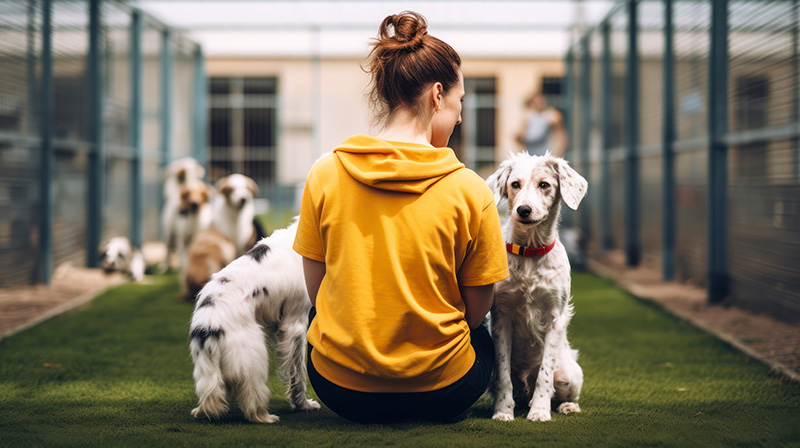Can I Deduct Kenneling a Dog Expenses on my Taxes?
February, 15 2024 by Veselina Arangelova, EA
I work for the federal government, and I am deployed months at a time, I hired a house sitter/dog sitter in the past. You said that kenneling a dog for work travel is considered a personal expense. However, I wonder if the answer is different if (a) I make income from my dog and/or (b) the fact that I am deployed for long periods, which means I need someone to maintain the house, pay the bills, etc.
-Julie, TX
Hi Julie,
I hope you and your pup are doing well. You are right; dog kenneling expenses are considered personal expenses, as noted in our previous blog post. Not much has changed since then on that front. Still, as I understand, you are also wondering if the answer might be different if you make income from your dog or if the expenses you pay may be considered unreimbursed employee expenses because you travel for work as an employee of the federal government.
I’ll focus on the second part of your question because I am unsure how you make income from your dog, and I don’t want to speculate to answer. Is it from a social media account or dog breeding? Feel free to follow up and I’d be happy to respond.
Now let’s discuss unreimbursed employee expenses. The implementation of the Tax Cuts and Jobs Act, also referred to as TCJA, suspended the miscellaneous itemized deduction for employees with unreimbursed business expenses for tax years 2018 through 2025. However, certain professions and occupations are allowed a deduction.
You mention you are a government employee and deployed for long periods. The two government-related occupations that may deduct unreimbursed expenses are armed force reservists and fee-basis state or local government officials. You are an Armed Forces reservist if you are a member of the Army, Navy, Marine Corps, Air Force, or Coast Guard Reserve; the Army National Guard; and the Public Health Service Reserve Corps. A fee-basis employee is somebody who is, in whole or in part, compensated on a fee basis.
The expenses you are trying to deduct must be paid or incurred during the tax year for carrying on your trade or business as an employee. Additionally, it must be considered ordinary and necessary. An expense is considered ordinary if it is common for people in your profession to have that same expense. It is necessary if it is appropriate or helpful, and it doesn’t have to be required to be considered a necessity.
Most expenses that are allowed are related to traveling itself and the expenses that go with it, such as food, lodging, fares, parking fees, and tolls. But only if they are not reimbursed or covered already by your employer. Even in those instances, personal, living, and family expenses are considered non-deductible. To see a comprehensive list of expenses you can and can’t deduct, Publication 529, Miscellaneous Deductions is a great resource.
In this case, it is not likely for you to be able to deduct your dog’s kenneling expenses unless you can prove that these are ordinary and necessary for your line of work.
Thank you again for your question and for your service to our country! Feel free to follow up if you have any additional questions.
Sincerely,
Veselina




